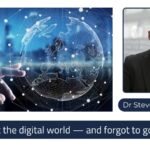The words of a professor at New York University resonate with her students: if Generation Z seems disenchanted, it’s because it sees little prospect for the future. With economic uncertainties, the climate crisis and changes in the world of work, the optimism of their elders has lost its appeal. This is one of the major generational divides we are witnessing today.
“There’s no reason to believe in economic security”: a researcher’s clear assessment
To hear Suzy Welch tell it, the moral contract that linked education, work and stability no longer holds. The university lecturer, who is one of the famous boomers, remembers her younger days. Back then, she knew that she would automatically have more money than her parents and that, if she worked hard, she would be able to own her own home. Today, she insists, these promises are “no longer guaranteed”. This shift is fuelling a more cautious, almost defensive posture among students who compare their sad lives today with the flamboyant tales of yesteryear.
In her classrooms,” she continues, “the skepticism of young people is not synonymous with flippancy but with a realism hardened by repeated crises. Generation Z, aware of new issues, is wondering how to define the sacrosanct notion of “progress”. What is the meaning of work? What’s the point in pulling yourself up by your bootstraps if you’re only going to destroy the planet and never get any guarantees of stability? This lucidity, which can be mistaken for apathy, is, according to Welch, a form of vulnerability and sadness.
Education, employment, promotion: the social ladder is stuck for generation Z
Suzy Welch’s picture is pretty clear: the world of work has changed. The classic pattern of “good studies / good job / internal promotion within a company” will “no longer be a reality” in 2025. In many companies, waves of redundancies are affecting middle managers, mechanically reducing the prospects of promotion for the front line… even though they are being given more responsibility. All this is without counting the impact that AI is already beginning to have on a good number of fairly well-paid jobs.
Added to this is the explosion in the cost of living. In France, as in the United States, the price of housing and basic necessities is rising much faster than wages. For young people in the workforce, the calculation is clear: even with a qualified job, it’s very difficult to envisage access to property ownership.
Climate, the economy and the managerial mindset: from mistrust to empathy for gen Z
In addition to economic uncertainties, ecological concerns are central to the imagination of young people. According to Welch, many students are convinced that “something will happen in the next few decades” because of global warming. Some even formulate the idea that “the world will probably end because of the stupidity of the decisions taken by previous generations”.
Rather than castigating alleged laziness or indifference to work, Suzy Welch invites managers to shift their focus. She suggests looking at the source, the root, of the attitude that is attributed to teenagers and young adults. Generation Z (born between 1997 and 2012) is entering the workforce on a massive scale, and, along with the millennials, Forrester estimates that it will account for 74% of the workforce by 2030. Forrester believes that understanding their issues, creating environments that give meaning to their efforts and credible paths for progression are the keys to better cooperation, attracting talent and, above all, retaining it.










